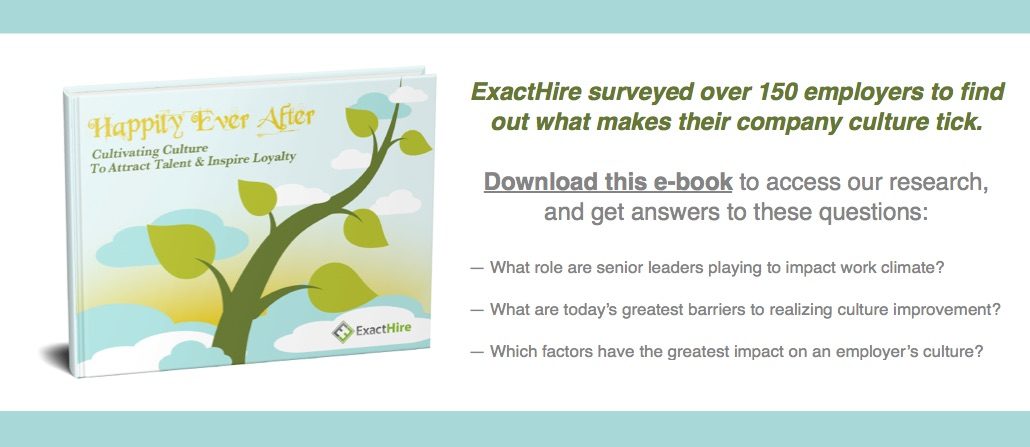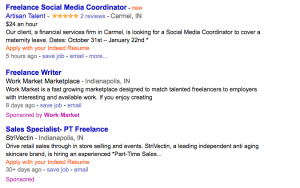Beat Monday Blues – 5 Tips for Being Energized for the Work Week
Staying motivated is all about staying engaged and excited about what you are doing. Therefore, the key to self-motivation is giving yourself something to look forward to on a regular basis. This can either come in the form of a goal you are hoping to achieve or a reward you will earn for yourself (or give yourself) if you achieve your goal. For example, most fitness fanatics will reward themselves at the end of a competition with a juicy burger, cupcake or some other indulgence.
We do this in our everyday lives. We reward ourselves in some small manner and give ourselves a token of appreciation. It’s simple, but keeps us motivated. We can address our work and jobs the same way. We all have certain aspects of our jobs that we like and certain aspects that we do not like. So how do we stay motivated to do the things we don’t like, but have to do?
Staying energized and avoiding just working for the weekend is a common challenge for most workers. If we have something coming up on the weekend that we are eagerly anticipating, it can be hard to maintain focus on tasks during the week. Moreover, Mondays are exciting for some and depressing for others. If you just don’t like your job, it will be hard to do anything for your Monday blues–other than look for another job. So let’s presume you like your job, but just get the Monday blues. There are a number of ways you can help yourself get energized for Monday.
1 – Complete Your Work on Friday
If you end your week with lingering to-dos for Monday, you may find yourself thinking and worrying about these items all weekend fueling your Monday blues. Plan your week so that you have a reasonable shot at completing any high priority tasks and projects by Friday. This will allow you to start fresh on a Monday and have a clearer conscious for the weekend. Ultimately this will reduce the stress of Monday and help you better enjoy your time off. This goes for your time leading up to a vacation as well.
2 – Plan Your Monday
If you take time to plan ahead and layout your day, Monday won’t be as stressful. If you can plan out the entire week, it will be even better. The more planning ahead you can do the more likely you will be to attack a new week head on and in an energized manner. Disorganization will always increase stress levels, and if you start your week off this way you will be sure to have a rough week.
3 – Arrange Your Schedule
If you have the luxury of doing so, arrange your schedule to give yourself something compelling to look forward to on Mondays. Figure out the tasks that give you the most excitement and energy and put those on your calendar for Monday. This way you can start your week out by looking forward to something rather than dreading what is to come.
For example: If you travel for your job and hate getting up at zero-dark-thirty to head into the chaos of the airport, try to avoid doing that on a Monday. This is a sure way to not enjoy your weekend and be stressed about Monday. Adjust your schedule to take an afternoon flight or maybe even a flight on Sunday afternoon.
Another example: If you hate meetings and you have the ability to schedule them alternatively, avoid scheduling them on a Monday morning. Instead try to schedule them for a Tuesday or other day. On the flip-side if you like meetings, schedule them for Mondays so you have something to which you may look forward.
4 – Disconnect
If you do a great job closing out your work week, you will be able to relax over the weekend and re-energize for the coming week. There are some things you will need to do in order to completely disconnect from work during the weekend. As mentioned above, do not leave any loose ends if possible–this is a must!
Do something fun over the weekend. The more you’ve filled your days the more you will be able to focus on recreation and relaxation. Find time to do the activities that relax you the most and are the least associated with work.
5 – If You’re Doing What You Love, Then You’re in Luck
The ultimate best way to be prepared for the workweek is to be in a job you love. This is easier said than done, but worth addressing. If you are doing something you love, it will seem less like work and more like an integrated part of your life, that as a bonus, you get paid for doing! So how do you do this?
To be energized every day and every week, you must be excited for what you are doing so when you show up to work it’s seamless. Below are four tips for aligning yourself with a job that you love and are energized for every day.
Set Priorities
The first step is to set priorities. This primarily means defining what you need to earn and what you’re willing to do to get it. If you are always just working for a paycheck, it will be tough to be energized everyday. Identify what you love to do and then research what you are able to earn by doing it.
Identify Motivators
Everyone has different things that motivate them. What kind of work, environment, and topics motivate and interest you to learn and grow. Search for careers and workplaces that will offer these to you and you will enjoy showing up and be motivated every day.
Avoid De-motivators
Just like you want to identify motivators, avoid de-motivators. For example, if you hate to travel, do not take a job that requires you to travel. If you don’t like to be outside, do not take a job that requires you to be outside. Even if you love the work you do in your job, you will grow to hate it if the environment is not what you like.
Monetize Your Hobby
This is the ultimate goal of probably every human being. Can you take what you love to do in your spare time and turn it into a cash flowing enterprise? If you can, you’re sure to be motivated and energized everyday at work.
By following these easy tips, you’ll be on your way to dashing the doldrums that can set in when you catch a “case of the Mondays.”



